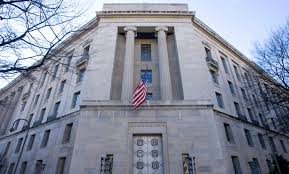The Power of a Justice Department Declination
 Tom Fox and I recorded a podcast recently on the Johnson Controls enforcement action. In our podcast we discuss a number of issues relating to the Justice Department’s decision to reward Johnson Controls with a declination.
Tom Fox and I recorded a podcast recently on the Johnson Controls enforcement action. In our podcast we discuss a number of issues relating to the Justice Department’s decision to reward Johnson Controls with a declination.
You can listen to our podcast here.
It is always a pleasure to work with Tom and our discussion centered on a number of issues, including DOJ’s FCPA Pilot Program. As everyone knows, the Pilot Program encourages companies to voluntarily disclose FCPA infractions to the Justice Department, cooperate with the government, remediate any violations, and disgorge any illegal profits, in exchange for a possible 50 percent reduction from the bottom of the sentencing range or a possible declination.
According to internal sources, some DOJ officials advocated for awarding companies a declination rather than just a 50 percent reduction in the fine range. Their request, however, was rejected by the Deputy Attorney General’s Office and the program was scaled back to the 50 percent reduction.
Interestingly, since the announcement of the FCPA Pilot Program, the Justice Department has announced five enforcement actions, including three declinations: Akai Technologies, Nortek, and Johnson Controls. One company, Analogic, did not receive a declination, because Analogic’s internal investigation failed to uncover significant conduct by various officials. In the other matter, Latam did not earn a declination because it did not voluntarily disclose the matter nor did it adequately remediate in response to the violations. 
The Justice Department’s actions raise the possibility that in practice the staff and senior staff are seeking to dangle declinations to encourage voluntary disclosures. Over the years, the Justice Department has seen a decline in voluntary disclosures as companies conduct a more careful balancing of the benefits and costs resulting from a voluntary disclosure. A promise of a declination is a significant incentive for companies, and a much bigger carrot than a 50 percent reduction from the bottom of a sentencing range.
A Justice Department declination provides significant benefits to the company. A declination wipes the slate clean for a company, no obligations are imposed (assuming no Non-Prosecution Agreement), and the company can remediate any reputational damage from any public disclosure of an internal investigation or potential government enforcement action. It is the Holy Grail for defense counsel and the objective of any enforcement defense. Depending on the surrounding facts and circumstances, a declination can be a realistic possibility.
 The Justice Department’s rationale for rewarding companies that cooperate and meet the other Pilot Program requirements is to focus its resources on prosecuting culpable individuals. FCPA prosecutors should be able to increase prosecution of individual actors based on the Yates Memorandum and Pilot Program requirements. If there is a significant increase in individual prosecutions, DOJ will be able to withstand any criticism of the declination given to companies to reward them for their cooperation.
The Justice Department’s rationale for rewarding companies that cooperate and meet the other Pilot Program requirements is to focus its resources on prosecuting culpable individuals. FCPA prosecutors should be able to increase prosecution of individual actors based on the Yates Memorandum and Pilot Program requirements. If there is a significant increase in individual prosecutions, DOJ will be able to withstand any criticism of the declination given to companies to reward them for their cooperation.
We do not have a significant track record yet to confirm how DOJ intends to apply the Pilot Program benefits and requirements. On paper, the Pilot Program does not appear to be sufficient to increase significantly voluntary disclosures. The Justice Department, however, may intend to develop an informal policy of awarding declinations when justified based on the strength of a company’s voluntary disclosure, cooperation, and remediation, along with disgorging any ill-gotten profits.
















1 Response
[…] Read Full Article: The Power of a Justice Department Declination – Corruption, Crime & Compliance […]